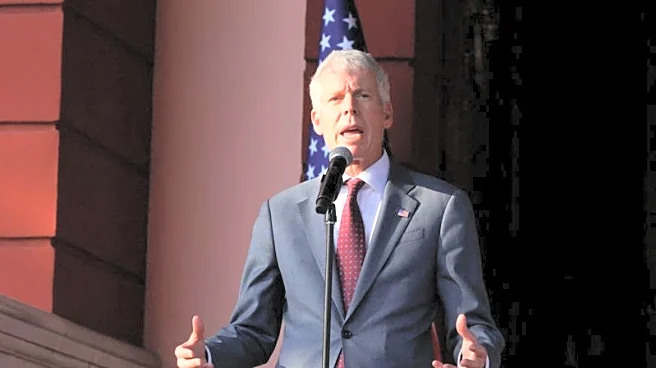Rapid Read • 8 min read
China's top diplomat, Wang Yi, visited Delhi, marking a significant step in improving relations between China and India. Both countries have agreed to resume trade ties and work towards resolving the long-standing Himalayan border dispute. This development comes amid a global geopolitical shake-up influenced by President Trump's tariff regime. The visit precedes an expected meeting between India's Prime Minister Narendra Modi and China's leader Xi Jinping in Beijing, which will be Modi's first trip to China since 2018. Relations between the two nations had deteriorated following a deadly border clash in 2020, but recent talks have aimed at de-escalation and boundary delimitation.
AD
The resumption of trade and diplomatic ties between China and India is crucial for regional stability and economic growth. Both countries are major players in the global economy, and their cooperation can significantly impact international trade dynamics. The thawing of relations is partly attributed to the geopolitical shifts caused by President Trump's trade policies, which have altered traditional alliances and economic partnerships. Stabilizing the India-China relationship is essential for managing regional tensions and ensuring a balanced approach to Indo-Pacific dynamics, especially as the U.S. presence in the region is perceived to be reduced.
India's Prime Minister Modi is expected to visit Beijing in October to meet with China's leader Xi Jinping, which could further solidify the progress made in diplomatic relations. Additionally, discussions on boundary demarcation and de-escalation are likely to continue, with both countries exploring possibilities for advancing negotiations. China's plans to build a giant dam on the Yarlung Tsangpo river remain a point of contention, and India has raised concerns about its impact on downstream communities. The ongoing dialogue between the two nations will be crucial in addressing these issues and maintaining regional stability.
The warming ties between China and India could have broader implications for regional alliances and power dynamics. As both countries navigate their relationship with the U.S., they may seek to strengthen their bilateral cooperation to counterbalance geopolitical pressures. The evolving nature of India-China relations could influence other countries in the region, particularly those involved in Indo-Pacific partnerships. The focus on economic collaboration and boundary resolution may also set a precedent for addressing other contentious issues in Asia.
AD
More Stories You Might Enjoy












